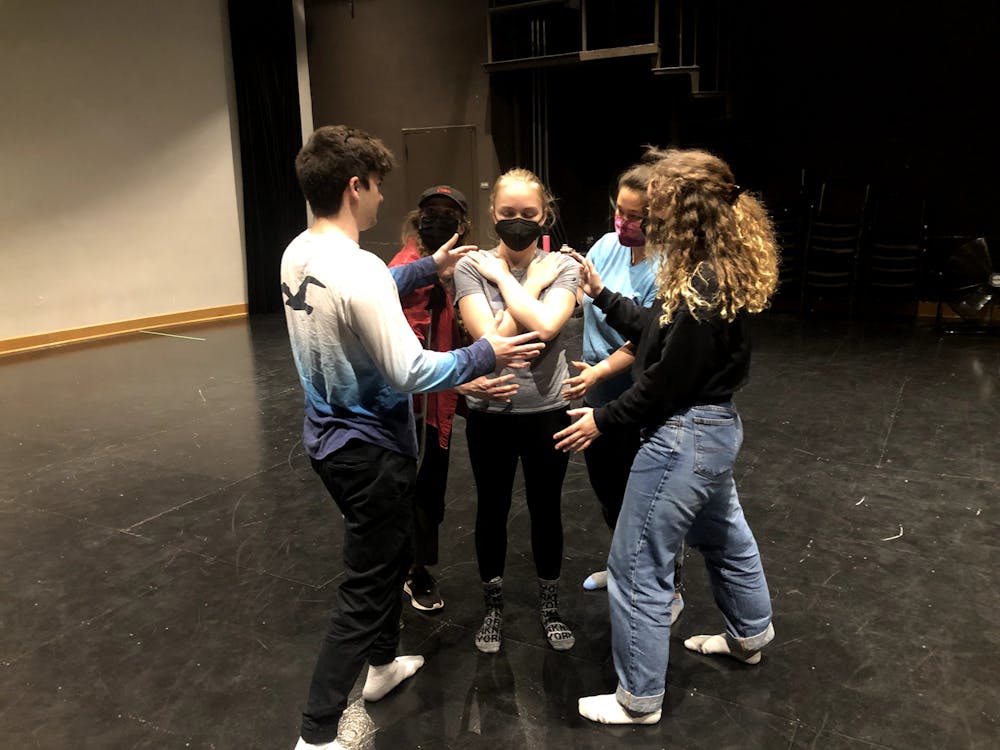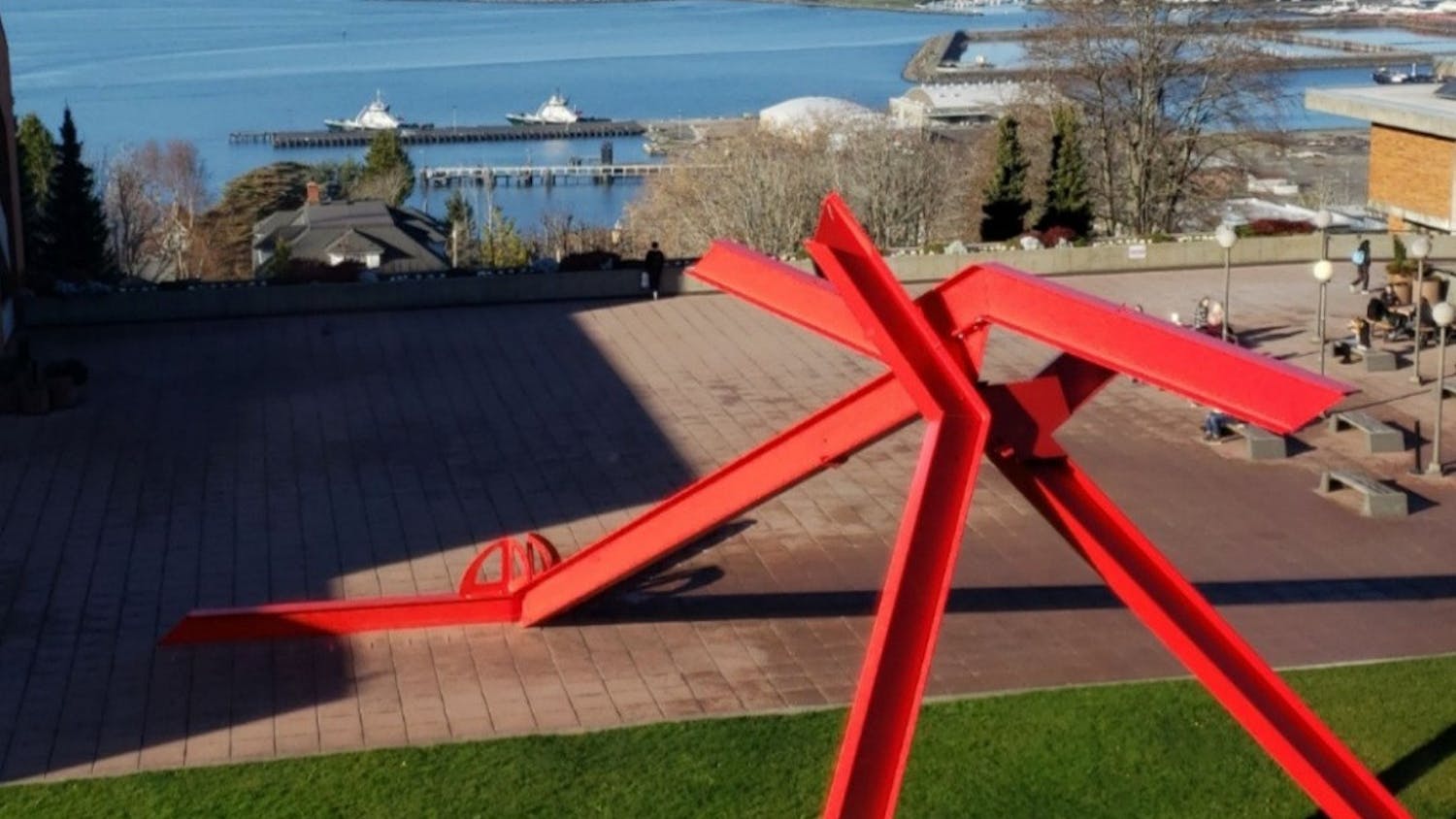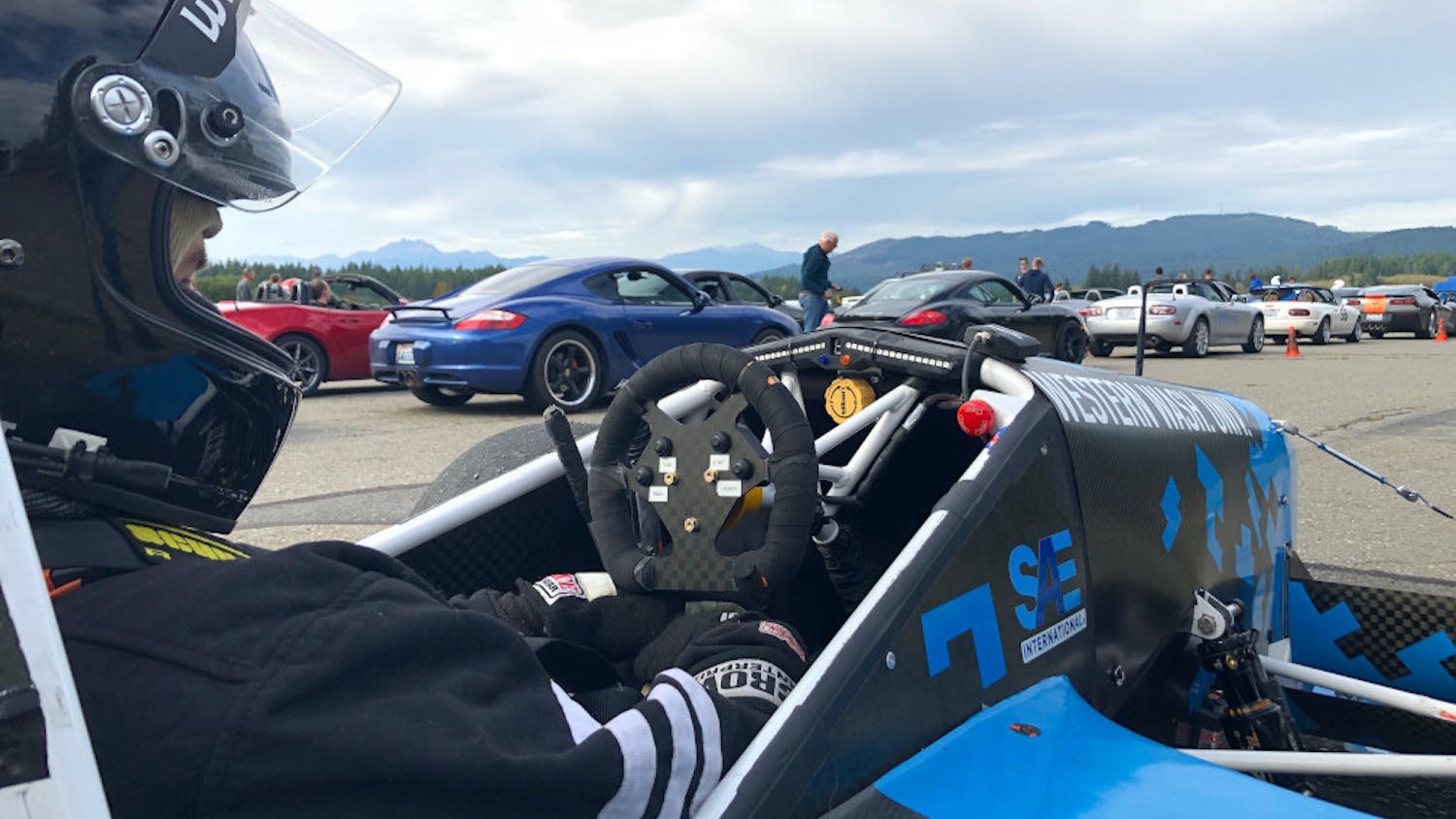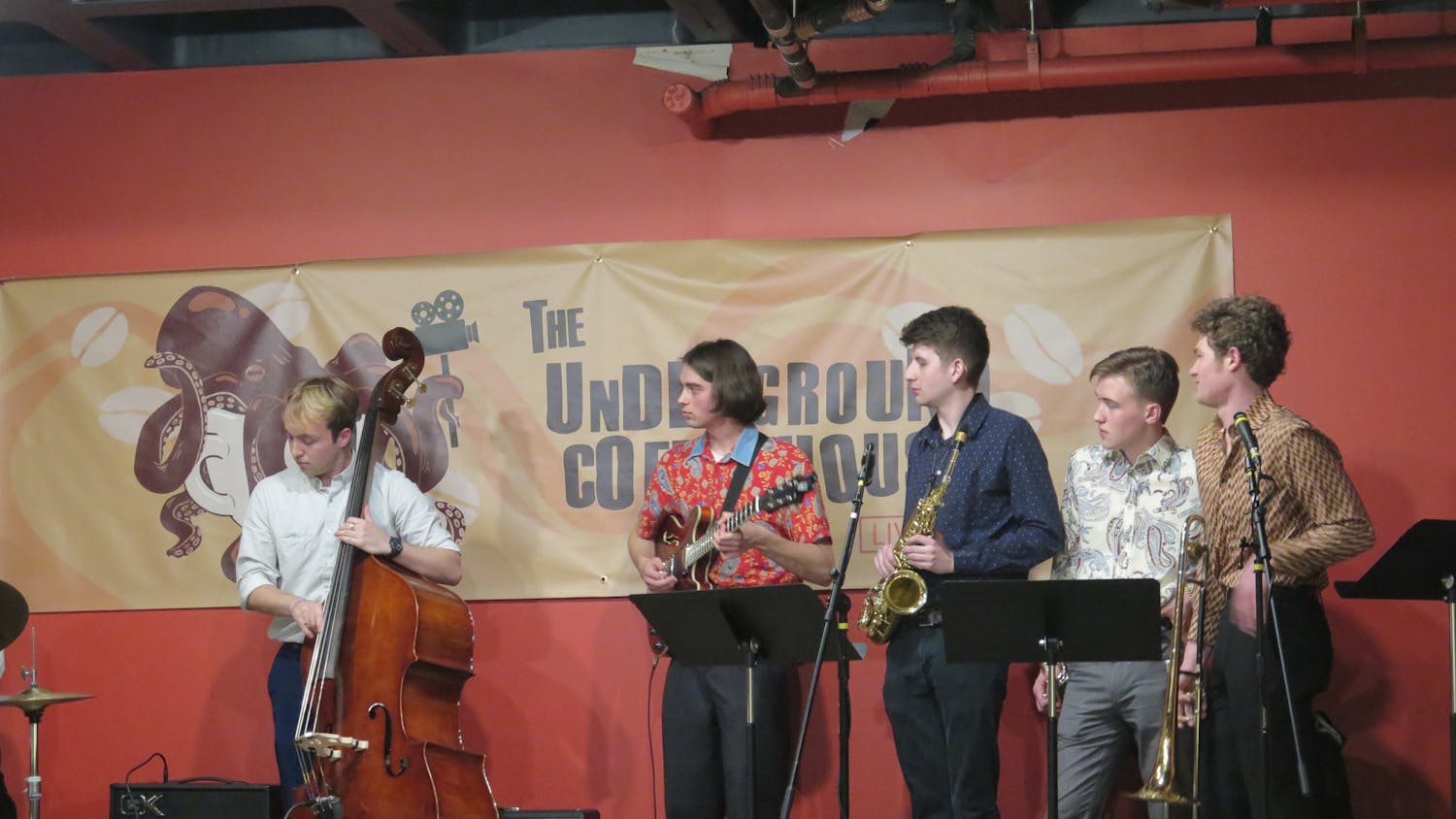As the end of the school year approaches, students in the Honors College are working to complete their capstone projects.
Third-year Western Washington University student Aidyn Stevens has facilitated workshops for her Honors College and Theatre capstone project.
Stevens conducted a series of workshops with the intent to use theatre as a method to address how white supremacist culture in predominantly white institutions marginalizes students.
In these workshops, Stevens applied concepts from the Theatre of the Oppressed, a community-based curriculum that utilizes theatre techniques as tools for transformation.
Theatre of the Oppressed is used internationally for social and political activism, community building, and conflict resolution. It aids critical thinking and analyzing rather than accepting.
A large part of this education is using your body and physical engagement to express emotions and opinions on issues at hand.
In the wake of COVID-19, Stevens with a performance emphasis, was unable to physically engage with the learning material during her first year in college. She said personally, quarantine was a call for self-reflection and her values in activism.
“I came to the realization that it’s not just about performance for me, but also the passion for community building, being an advocate and applying a social justice lens,” Stevens said.
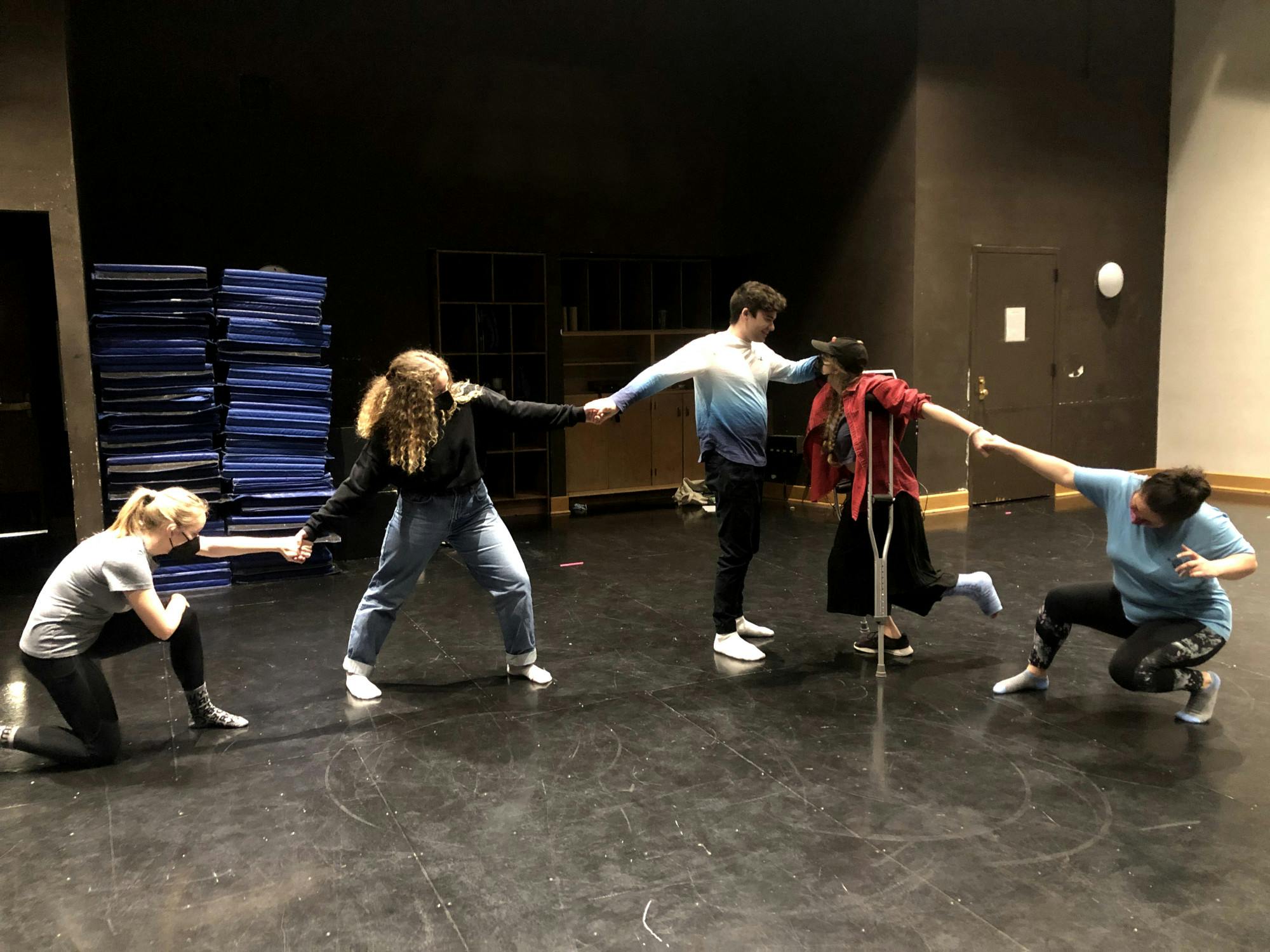
A group of Western students links arms in a chain during the last anti-white supremacy workshop on May 1. // Photo courtesy of Aidyn Stevens
Stevens was inspired to conduct these workshops after attending a similar embodied practice event on campus last year that was hosted by Nabra Nelson, Seattle Repertory Theatre’s director of arts engagement.
“After the murder of George Floyd, a lot of art organizations were called out and called forward for their lack of equity, inclusion and diversity,” Stevens said.
In 2020 during the time of protests and calls for anti-racism in the United States, BIPOC theater artists organized “We See You, White American Theater” and produced a list of demands that address anti-Blackness and racism in American theatre.
The testimonial letter, “Dear White American Theater,” was created by theatre-makers across the country and revealed indignities that BIPOC experience daily in the industry.
“Theatres responded with solidarity statements; however, these statements still felt very empty to me,” Stevens said. “Even now, two years later, there’s an absence of change from traditional theatre companies.”
Stevens said her frustration led her to research more on applied theatre, specifically, Theatre of the Oppressed. She is now learning how to share her knowledge with the Western community.
This concept of applied theatre and embodiment became significant to an attendee of Steven’s workshops, third-year Chiyo Aoki-Kramer.
During a workshop, Aoki-Kramer experienced connectivity through theatre team building exercises and said the activities built a sense of empathy.
“By the end of it, you feel so connected to everyone because of how mindful everyone is through the activities we do,” said Aoki-Kramer. “Even though you walk in being strangers, you end up understanding their words more because you’re in-tune with their movements and are more present within yourself.”
Aoki-Kramer also said it was also an eye-opening experience witnessing how disconnected she has been from her physical body.
“Anxiety and stress are talked about from a mental health perspective, but what I didn't realize is how I carry it on my body,” Aokia-Kramer said.
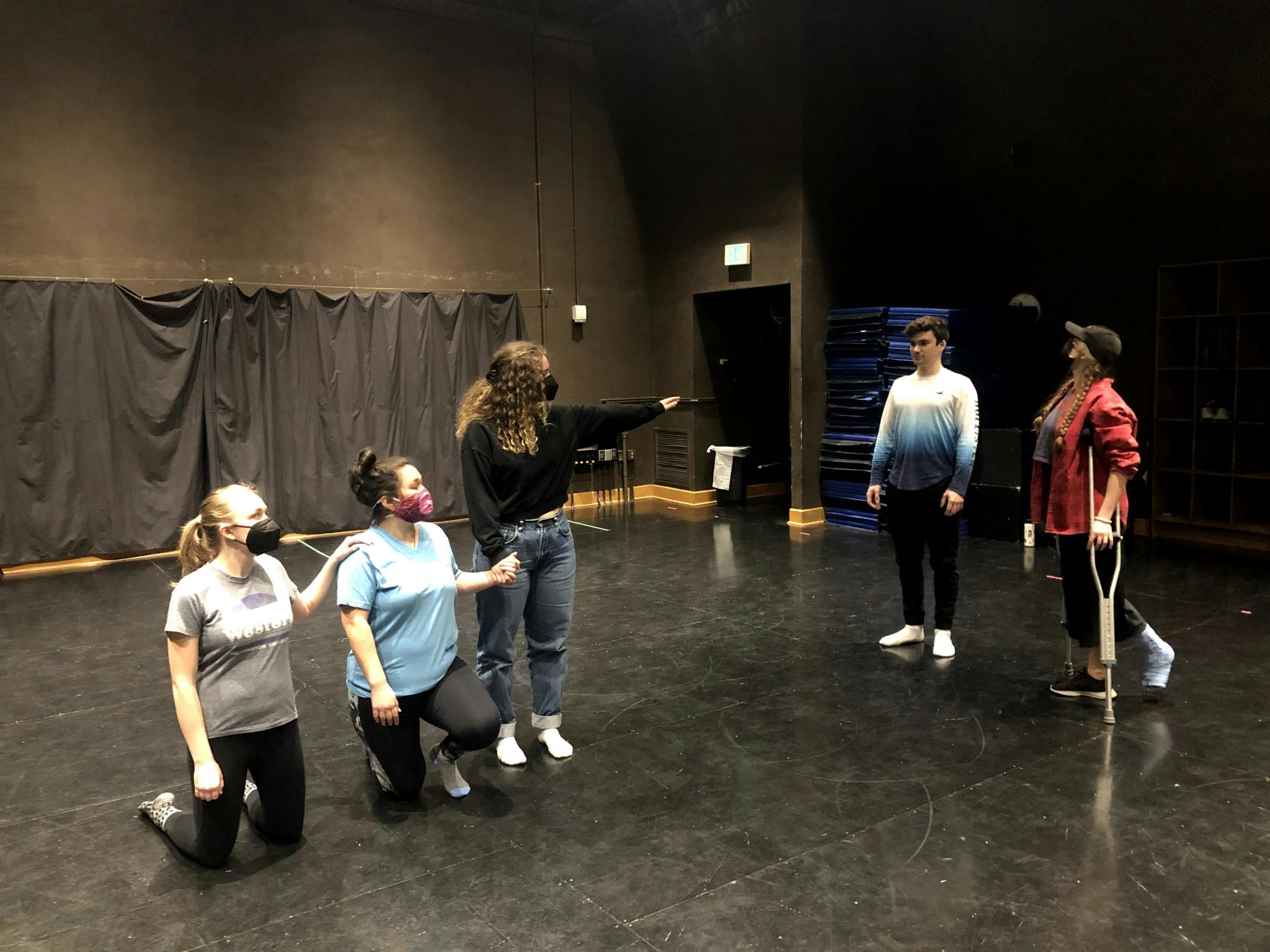
Half the group of students kneels while the other half stands during a warm-up focused on highlighting the group effort behind these activities and the sense of empathy it creates amongst participants. // Photo courtesy of Aidyn Stevens
Stevens said everybody deserves more opportunities to connect with their bodies.
“Between classes, work and daily life, society tells us we don’t have time to be human beings. So connecting building communities and safe talking spaces is what is truly exciting to me about this work,” Stevens said.
Evan Mueller, an associate professor of voice/acting at Western, is an advisor to Stevens and said while performance is a rewarding aspect of theatre, there is a deeper message behind the practices.
“It is important that people consider how these tools and practices of theatre be used to achieve a whole variety of missions,” Muller said. “One thing theatre is good at is taking a group of artists and working towards a common goal.”
He said that small-scale community building is what is being applied in larger communities to spark engagement, conversation and action. Steven’s workshops connected the lines between community, embodiment and conversation.”
“These theatrical techniques require us to use our whole human instrument to live in and analyze these issues,” Mueller said.
Stevens will be giving her final presentation on workshopped theatre methods in predominantly white institutions on June 6 in Old Main room 330C at 3 p.m.

Mia Tocas (She/Her) is a reporter for the campus life beat at The Front this quarter. She is a second-year majoring in Public Relations with a minor in Creative Writing. Outside of work and school, she enjoys playing music, spending time with friends, and watching murder documentaries on Netflix.
Her instagram is @milagro.jt


